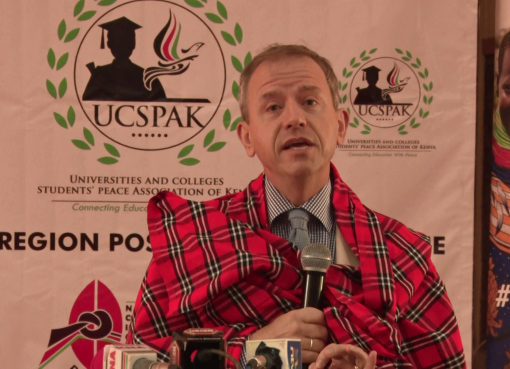He was born deaf. All his life, the world has been a beautiful but soundless place dominated by eternal silence. However, deafness has never held Mr Emmanuel Tokali back from achieving his dreams.
Born and raised in Kilifi, he studied in special schools in both primary and secondary school but failed to join varsity due to lack of school fees.
“I did not join any college or university due to lack of school fees but if I get support, I would love to study special needs education,” he said.
One of the major challenges that the deaf community faces are challenges in communication. Most people do not know how to use sign language and are left to guess what a deaf person wants. Though a challenge, Mr Tokali saw an opportunity that could both become a business and bridge the communication gap between the deaf and the hearing.
He partnered with a friend to open the Excellence Sign Language Training Centre in February 2022. This centre was to help break communication barriers between the hearing impaired and those who can hear in addition to teaching people sign language.
“We want people to learn this language,” he says.
The institute is accredited by the Technical and Vocational Education Training and offers three courses. The basic course goes for sh 25,000 and runs for three months while the advanced course costs sh 31,000 for three months. Interpretation costs sh 71,000 and takes one and a half years to complete.
The centre lessons run from 8:30am to 6:30am from Monday to Friday. On Saturdays, the lessons run from 8:30am to midday.
Currently, the class has seven students; five ladies and two men. The low enrolment is attributed to lack of awareness about the existence of the centre. There is also community stigma associated with deafness.
“We do not have age restrictions on who can learn the language because our aim is to let the sign language be known by everyone,” he explains.
Inside the centre, the classroom walls are filled with pictorial paper charts. They have types of greetings, numbers, alphabet sign charts, food and jobs. These are crucial teaching aids used for demonstration purposes.

Mr Abdulnasir Lenjo, Tokali’s partner, is also deaf. Formerly a teacher at Mwanyambo Primary School for the Deaf, he was forced to stop teaching after Competence Based Curriculum (CBC) was introduced because he found it too challenging.
“CBC has affected the deaf negatively. There are no materials provided for the deaf since their language is different,’’ Lenjo said.
Lack of good sign language teachers has been a challenge that reflects in the students’ performance. The deaf students prefer deaf teachers to teach them as they not only understand each other verbally but also emotionally.
Mr Lenjo says the deaf usually prefer to remain isolated because few people know sign language. They decide to stay away as they cannot engage in most activities. He disclosed that the deaf often practice endogamy marriage which is marriage within one’s own group.
“They also receive information too late because no one thinks of translating the message for them to get,” he said.
Miss Vivian Talu, a student at the institution doing the interpretation course, terms the centre as helpful in enhancing the learning of sign language.
“I met Abdulnasir in Nairobi in 2017. He taught me finger spelling. With time, he started teaching me deeper words in sign language and that is how I got to know sign language,” she said.
Amongst the areas where sign language interpretation is needed include County government offices, hospitals, mosques, churches and police stations.
She says that sign language interpreters are needed because the deaf have challenges getting services from those offices.
Mr Lenjo and Tokali are making efforts to meet with the County government about inclusion of the deaf in their programmes but they have not been successful.
By Selina Otee





